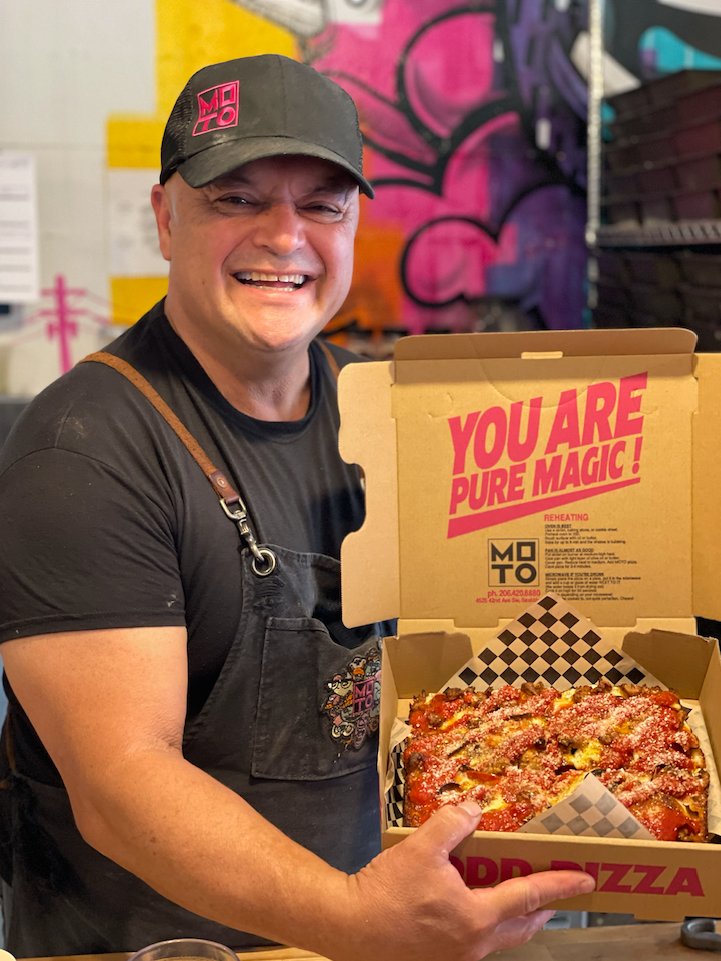Before the pandemic, Lee Kindell ran a travel hostel in Seattle, where he was known for the tasty pizza he served his guests. A couple years and a pandemic later, he’s running Seattle’s hottest restaurant and has just closed his first round of funding.
In an interview with The Spoon, Kindell has revealed that MOTO Pizza has raised $1.85 million in funding from what he describes as strategic, private “non-venture capital” funding. He says the new funding will help the company execute on its plans for the next twelve months, plans which include the chain’s first move outside of Washington State.
According to Kindell, MOTO will open its first location in California in Indian Wells, a city in Coachella Valley nestled between Palm Desert and La Quinta. California’s first MOTO will reside within the Indian Wells Tennis Garden tennis facility, where it will serve up pizza at big events such as the Indian Wells Tennis Open in March 2024. The company also has plans to expand to new locations within Washington State, including up north to Bellingham and over on the east side in Bellevue.

Beyond store expansion, MOTO is expanding its technology portfolio, including trialing a salad-bowl robot from Vancouver’s Cibotica. For Cibotica, which publicly debuted its bowl food robot last week, MOTO is their first announced trial partner in the US.
Kindell told The Spoon that MOTO will also start delivery via drone in 2024, signing a deal with Zipline to deliver pizza by the end of next year. Last month, Zipline achieved a significant milestone when it launched its first “beyond visual line of sight” (BLVS) delivery. MOTO is the second pizza partner for Zipline in Washington state after the company announced it was working with Pagliacci in May.
Kindell said that while he’s heard from several VCs interested in investing in MOTO, a modest investment felt right for the coming year.
“We felt like it was too early for us to raise through VC,” said Kindell. “We wanted to take advantage of the demand and attention for MOTO and use it to grow, while implementing the new technology into our growth. I think we will have the model we’ve been working hard towards next year, and then we can put together a big raise. We’ve already captured some attention with some VC, and that’s pretty exciting.”
“My end game is a successful autonomous pizza operation, and I can’t wait for it!”















